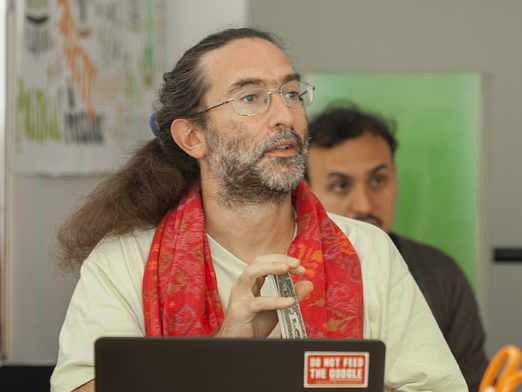So now you understand that national currency is toxic, and that banks profit from all the money in circulation. You've written to your MP and received the standard response - now what?
One local solution is to join, or set up a credit clearing system. Members of these systems promise to provide as much to the group as they take from the group. To measure how much everybody owes everybody else, they use their own unit of account. This unit is like money, but it doesn't need to be backed, and doesn't bear interest. This means the members of the circle offer each other interest free credit when they need it, so there's always enough 'money' to trade within the circle. For more on the theory, read The End of Money and the Future of Civilization.
There are many thousands of credit clearing systems in the world, the biggest being the Wir Bank taking many forms, but their impact is marginal in a global economy and when banks have a monopoly on creating legal tender money. But these systems can be used to
- keep money local, stimulating local businesses and creating local jobs
- grant credit lines without permission or help from profiteering banks.
- rebuild community
Cool, so how do I start?
There are some groups doing this already, some for businesses (B2B) and some personal (P2P). If there's one near you, then you can simply join up
- Business-to-business barter networks [link from Richard Logie]
- LETS groups (P2P)
- Time Banks (P2P)
If a B2B or P2P group doesn't exist near you, then you could approach an existing group and tell them why they should be issuing each other credit to supplement their cashflow. Consider:
- Transition Towns
- your local chamber of Commerce
- any other local traders' association
- local church or community groups
- local markets, such as with the new Volos in Greece
Starting a group from scratch is also possible, but by far the hardest option. You will need:
- a 'sales' personality
- allies and connections in the local community
- a good understanding of credit clearing systems
Professional systems cost thousands of pounds per year to run, but advice and support are available. For nonprofit systems there is free software, but much less support.
Finally also consider offering your professional skills to the following organisations, who are working to build up the expertise in this field:
The Complementary Currency Resource CentreCommunity Forge
Time Banks UK

Comments